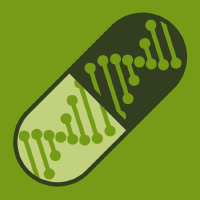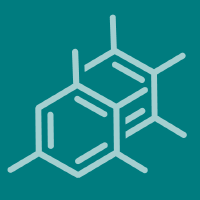Topic Editors

Biosimilars and Interchangeability
Topic Information
Dear Colleagues,
Biological products include medications for treating many serious illnesses and chronic health conditions. A biosimilar is a biological product that is highly similar to, and has no clinically meaningful differences from, a biological product already approved by the Food and Drug Administration (FDA) or the European Medicines Agency (EMA), which is also termed the reference product. All biological products are only approved after meeting both agencies’ rigorous approval standards. This definition is based on a comprehensive review of scientific evidence, which demonstrated that the biosimilar is highly similar to the reference product and that there are no clinically meaningful differences between the two products in terms of safety, purity, and potency (i.e., safety and efficacy). This evidence included comparisons of the products at an analytical level, using a comprehensive battery of chemical and biological tests and biological assays to confirm the similarities in the structural and functional characteristics of the two products (including those known to influence safety and efficacy).Additionally, it was supported by comparative data concerning human pharmacokinetics, clinical immunogenicity, safety, and overall effectiveness.
Nevertheless, an outstanding debate surrounds the question of whether biosimilars can be regarded as interchangeable with their reference biological products (and vice versa), or with biosimilars of the same reference product.
The EMA has not issued any official position or guidance on the interchangeability of biosimilars, as prescribing and advising physicians is the responsibility of each Member State of the European Union (EU). In Europe, a biosimilar that meets the rigorous regulatory requirements of the EU Biosimilar Approval Pathway may be considered interchangeable; however, it is at the discretion of each Member State to establish prescribing and dispensing protocols for the interchangeable use of biosimilars. In the United States, the regulatory assessment of biosimilar interchangeability differs from other approaches. The Biologics Price Competition and Innovation Act of 2009 (BPCIA) legally defines it, and biosimilars that are granted interchangeability status may be substituted for the reference biological product at the pharmacy level, subject to state laws, without the prescribing physician's intervention.
The development of biosimilar products may involve various facets, such as enhancing the recognition and evaluation of product attributes, defining acceptable differences in attributes more accurately between the reference product and the suggested biosimilar product, devising analytical methods to detect relevant disparities, and undertaking comparative analytical evaluation with advanced statistical methodologies. Additionally, exploring the use of in vitro and in silico methods to assess immunogenicity could potentially support demonstrating interchangeability between the reference product and the proposed interchangeable product. In this context, the “switching design” could be of interest.
We are pleased to invite all researchers and research teams that are interested in the field of biosimilars and interchangeability to contribute to this Topic with their manuscript(s). Full original research papers, short communications, and reviews regarding this topic are all welcome.
Dr. Alexis Oliva
Prof. Dr. Shein-Chung Chow
Dr. Joao Goncalves
Topic Editors
Keywords
- biosimilars
- interchangeability
- analytical similarity
- quality attributes
- equivalence test
- tiered approach
- QR method
- margin
- reference product change
- immunogenicity
Participating Journals
| Journal Name | Impact Factor | CiteScore | Launched Year | First Decision (median) | APC | |
|---|---|---|---|---|---|---|

Biologics
|
- | - | 2021 | 27.7 Days | CHF 1000 | Submit |

Molecules
|
4.6 | 6.7 | 1996 | 14.6 Days | CHF 2700 | Submit |

Pharmaceuticals
|
4.6 | 4.7 | 2004 | 14.6 Days | CHF 2900 | Submit |

Pharmaceutics
|
5.4 | 6.9 | 2009 | 14.2 Days | CHF 2900 | Submit |

MDPI Topics is cooperating with Preprints.org and has built a direct connection between MDPI journals and Preprints.org. Authors are encouraged to enjoy the benefits by posting a preprint at Preprints.org prior to publication:
- Immediately share your ideas ahead of publication and establish your research priority;
- Protect your idea from being stolen with this time-stamped preprint article;
- Enhance the exposure and impact of your research;
- Receive feedback from your peers in advance;
- Have it indexed in Web of Science (Preprint Citation Index), Google Scholar, Crossref, SHARE, PrePubMed, Scilit and Europe PMC.



